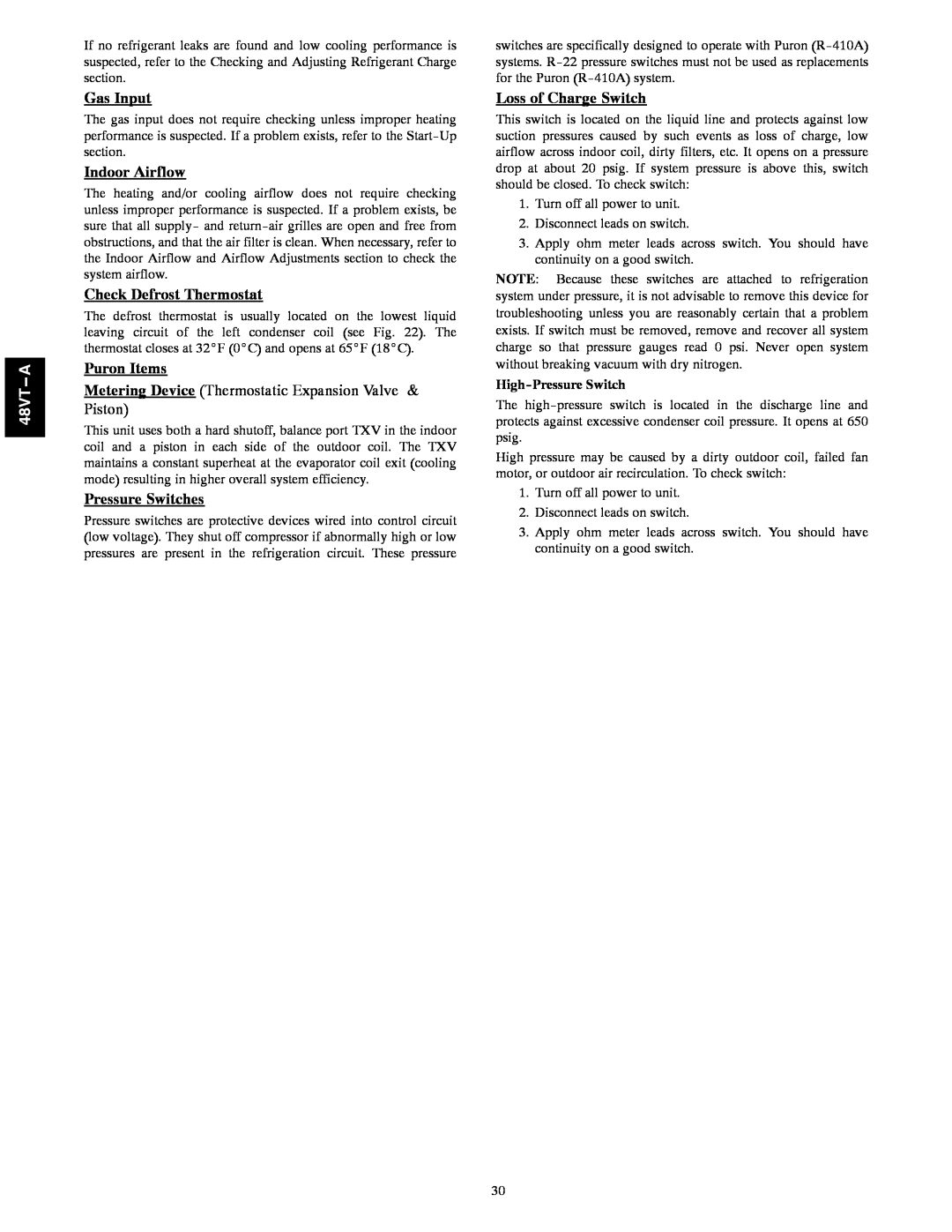If no refrigerant leaks are found and low cooling performance is suspected, refer to the Checking and Adjusting Refrigerant Charge section.
Gas Input
The gas input does not require checking unless improper heating performance is suspected. If a problem exists, refer to the
Indoor Airflow
The heating and/or cooling airflow does not require checking unless improper performance is suspected. If a problem exists, be sure that all supply- and
Check Defrost Thermostat
The defrost thermostat is usually located on the lowest liquid leaving circuit of the left condenser coil (see Fig. 22). The thermostat closes at 32_F (0_C) and opens at 65_F (18_C).
Puron Items
Metering Device (Thermostatic Expansion Valve & Piston)
This unit uses both a hard shutoff, balance port TXV in the indoor coil and a piston in each side of the outdoor coil. The TXV maintains a constant superheat at the evaporator coil exit (cooling mode) resulting in higher overall system efficiency.
Pressure Switches
Pressure switches are protective devices wired into control circuit (low voltage). They shut off compressor if abnormally high or low pressures are present in the refrigeration circuit. These pressure
switches are specifically designed to operate with Puron
Loss of Charge Switch
This switch is located on the liquid line and protects against low suction pressures caused by such events as loss of charge, low airflow across indoor coil, dirty filters, etc. It opens on a pressure drop at about 20 psig. If system pressure is above this, switch should be closed. To check switch:
1.Turn off all power to unit.
2.Disconnect leads on switch.
3.Apply ohm meter leads across switch. You should have continuity on a good switch.
NOTE: Because these switches are attached to refrigeration system under pressure, it is not advisable to remove this device for troubleshooting unless you are reasonably certain that a problem exists. If switch must be removed, remove and recover all system charge so that pressure gauges read 0 psi. Never open system without breaking vacuum with dry nitrogen.
High-Pressure Switch
The
High pressure may be caused by a dirty outdoor coil, failed fan motor, or outdoor air recirculation. To check switch:
1.Turn off all power to unit.
2.Disconnect leads on switch.
3.Apply ohm meter leads across switch. You should have continuity on a good switch.
30
